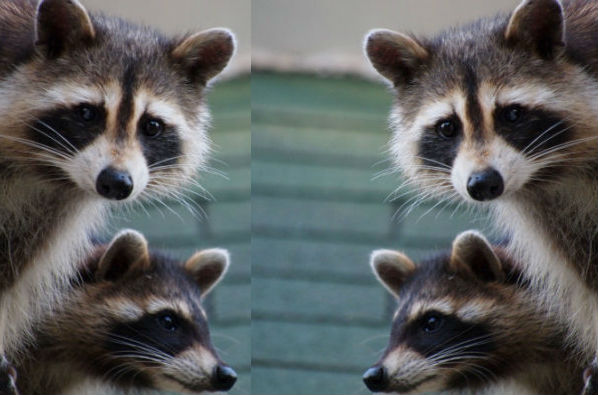 The Health Department, along with City agencies, federal and academic partners, is launching an effort to vaccinate raccoons against rabies in New York City.
The Health Department, along with City agencies, federal and academic partners, is launching an effort to vaccinate raccoons against rabies in New York City.
“Rabies can lead to serious complications for humans and our pets, including death,” said Health Commissioner Dave A. Chokshi. “New Yorkers should make sure their pets are up to date on rabies vaccinations and maintain distance from wildlife. If you see an animal you believe to be acting strangely, please call 311.”
Wildlife biologists with the United States Department of Agriculture (USDA) will distribute individual baits containing an oral rabies vaccine, using bait stations or hand tossing, in wooded areas in the Bronx, Brooklyn, Queens and Manhattan through October. The Health Department will also fly a helicopter at low altitudes to deploy vaccine baits on Staten Island’s wooded and marshy areas, and the Gateway National Recreation Area in Brooklyn and Queens during early to mid-October (weather dependent).

“Approximately 1.6 million baits are targeted for control of raccoon rabies in New York State during 2021, with 72,000 designated for New York City,” said Dr. Laura L. Bigler, Wildlife Rabies Vaccination Program Coordinator at Cornell University. “Annually, 9 million baits are distributed by USDA and numerous state/local cooperators in the eastern United States, with the ultimate goal of eliminating this very costly, fatal disease that impacts all mammals.”
The small, brown-colored baits are fish-scented and resemble a ketchup packet that conceals a small amount of pink, liquid vaccine. Raccoons are attracted to the odor, and when raccoons chew the bait, they can become immunized, protecting them against rabies infection.
So far in 2021, seventeen animals have been found to have rabies across NYC: 8 raccoons and 2 cats from Staten Island, 2 raccoons, 1 skunk, and 1 cat from Bronx, 1 raccoon from Manhattan, and 2 raccoons from Queens.
The bait itself does not harm people, but in extremely rare instances, exposure to the liquid may cause a rash. In the unlikely event someone comes in contact with the liquid, they should wash hands with warm, soapy water, talk to their doctor, and notify the NYC Poison Control Center at 1-800-222-1222. The bait is not harmful to pets and cannot cause rabies, but it can cause vomiting if several baits are consumed. If pets find the bait, do not try to take it away from them to avoid being bitten and exposed to the vaccine.
Rabies is a fatal but preventable viral disease. It can spread to people and pets if they are bitten by a rabid animal. In NYC, rabies is mostly found in raccoons. The rabies virus infects the central nervous system. If a person or pet does not receive the appropriate medical care after a potential rabies exposure, the virus can cause disease in the brain, ultimately resulting in death. Rabies can be prevented by vaccinating pets, staying away from wildlife, and seeking medical care after potential exposures before symptoms start.
Raccoons
- Raccoons live in New York City and if seen during the day be cautious but not alarmed. Being out during the day does not mean it is rabid, it may just be looking for food.
- Do not feed raccoons.
- Observe raccoons from a distance.
- For more information about raccoons, visit WildlifeNYC.
To protect yourself against rabies:
- Do not touch or feed wild animals, stray dogs or cats.
- Keep garbage in tightly sealed containers.
- Stay away from any animal that is behaving aggressively.
- Stay away from any wild animal that appears ill or acts unusually friendly. Call 311 to report a sick animal.
- Animals that have attacked, or appear likely to attack, should be reported to 911.
- Do not try to separate fighting animals.
To protect your pet against rabies:
- Keep pet vaccinations up to date and keep them leashed.
- Keep your dog leashed while outdoors.
- Do not leave your pets outdoors unattended.
- If your pet has been in contact with an animal that might be rabid, contact your veterinarian immediately and report the incident to 311.
- Feed pets indoors.
If you are bitten or scratched by an animal:
- Immediately wash the wound with lots of soap and water.
- Seek medical care from your health care provider.
- If the animal is not owned, and can be captured by authorized personnel, call 311.
- If the animal is a pet, get the owner’s name, address and telephone number so the Health Department can monitor the animal.
- To report a bite, call the Animal Bite Unit (212-676-2483) between 9 a.m. and 5 p.m. during the week. At night or on weekends, call 212-POISONS (764-7667).
- For information about medical follow-up, call 311 or your medical provider.
For more information about rabies in New York City, visit www.nyc.gov/health/rabies.
For more information on the Oral Rabies Vaccine, please visit the following sites:
New York State Department of Health:
http://www.health.ny.gov/diseases/communicable/zoonoses/rabies/vaccfact.htm
United States Department of Agriculture Animal and Plant Health Inspection Service, National Rabies Management Program: http://tinyurl.com/usda-rabies
Become a Harlem Insider!
By submitting this form, you are consenting to receive marketing emails from: . You can revoke your consent to receive emails at any time by using the SafeUnsubscribe® link, found at the bottom of every email. Emails are serviced by Constant Contact








